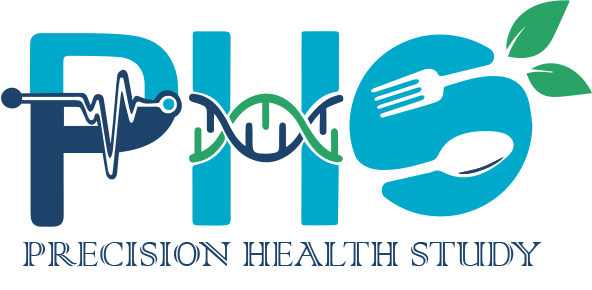
Precision Health study Focusing on the dietary glycemic index of carbohydrates
A Tulane University Study

Objective is to learn about how changing daily carbohydrate intake can affect blood sugar and metabolism, in particular after meals.
Participation in the study requires 3 visits to the study site in downtown New Orleans within a 2-week window.

Participants will be recruited in the New Orleans Metro area.
Be a part of this important study that can advance our understanding of carbohydrates and effects on blood sugar and metabolism.

Visit One
Eligibility is determined, Continuous Glucose Monitor (CGM) applied to the back of the arm, actigraphy watch to measure movement and sleep applied.

Visit Two
Participants randomized into 1 of 2 diets – low glycemic or high glycemic – and given three full days’ worth of food to consume.

Visit Three
Participant’s final visit, CGM and actigraphy watch returned.

Inclusion Criteria
- 30 years of age or higher
- Not pregnant or currently breastfeeding
- BMI greater or equal to 25
- Ability to give informed consent

Exclusion Criteria
- Medical history of Diabetes
- Medical history of Chronic Kidney Disease
- Food allergies, including but not limited to milk, eggs, shellfish, nuts, wheat or gluten, and soy.
- Specialized diet, including but not limited to keto, vegan, vegetarian, gluten-free
- Medications that affect blood glucose levels, including but not limited to beta blockers, steroids, anti-diabetic medications, including Ozempic and similar.


Participant Benefits
- 3 days’ worth of meals and snacks
- Gift cards on visits 1 and 3
- CGM report showing glucose levels for up to 2 weeks
- Actigraphy report showing sleep patterns
and calories burned for 2 weeks - Copies of all lab reports
- Free parking during study visits

Health Benefits
The CGM report in particular shows our participants how their blood sugar fluctuates throughout the course of the day, responding to particular foods or activities.

Health Outcomes
The more we learn about the effects of carbohydrates and blood sugar the better we can manage positive health outcomes.
Health Education
Health Education is always a component of post study outreach to inform the health providers and community.
